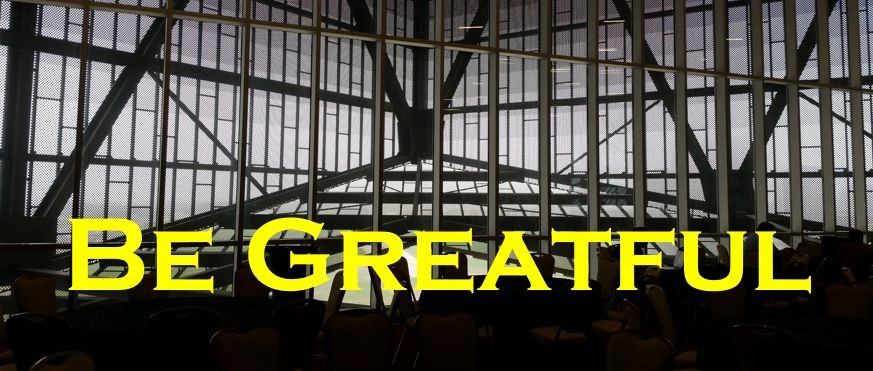The end of November can mean only one thing; Christmas is around the corner! But, wait. Don’t forget Thanksgiving.

It’s easy to do. Retailers provide a two-month heads-up for most major holidays and seasons. But with Thanksgiving falling between two cash cows like Halloween and Christmas, it no longer receives the attention it once did. Mr. Turkey somehow does not have the same sales appeal as Santa Claus and the Great Pumpkin. The Easter Bunny lucked out. Its holiday breaks the relative drought between New Years and Memorial Day.
In the new millennium there is also less excitement over “eating like it’s Thanksgiving, Christmas or Easter” at a family gathering. What once were truly unique occasions, punctuated with
signature dishes and special gatherings, have been marginalized by the ubiquitous buffet line and instant communication.
But specific to Thanksgiving, it has become confusing what the celebrants are to be thankful for. The Pilgrims were thankful their decimated number were still alive. It is hard, if not impossible
in our modern culture, to imagine the deprivation they experienced. And it may be unfortunate that no symbolic rituals emerged to remind future generations.
Fifty years ago Thanksgiving celebrated the end of two world wars and the re-emergence of prosperity. Despite recent dips, that prosperity has continued thru today. And, compared to a generation
or two ago, death and disease are not nearly as fear-inspiring. So, even the elderly in America must reach far back in time to find events with which to remind youngsters of their good
fortune.
Yet many people still find reasons to be unhappy and fearful. Where the Pilgrims struggled to physically survive, people in the new millennium struggle to achieve and accumulate. The home
foreclosure debacle is evidence that too many people no longer work to live, but to support a lifestyle.
This Thanksgiving, be greatful. The spelling is intentional. Begin with thankfulness. That is, unless you are starving and homeless, acknowledge the providence of sufficient food and a roof over
your head. As you consider others who are less fortunate, that may lead to gratefulness. That is, expressing appreciation for an employer, parents, or other source of what you have. It may not be
all you want, but it’s the rare person who truly has nothing.
Then, regardless of your status or station, give thanks for your internal greatness. To be greatful, or full of greatness, you must:
- Focus on what you have, not what you are lacking.
- Focus on your abilities (the things you can do), not your disabilities (the things, real or perceived, you are unable to do).
- Focus more on opportunities and less on limitations.
- Be generous in spirit (giving of yourself without thought of gaining any return or advantage), as opposed to harboring a miserly spirit (calculating personal benefit in the guise of philanthropy).
Stop thinking about getting rich. Be great instead. In fact, be full of greatness. Greatfulness may make you rich in ways you never imagined. And then you can be truly thankful.
